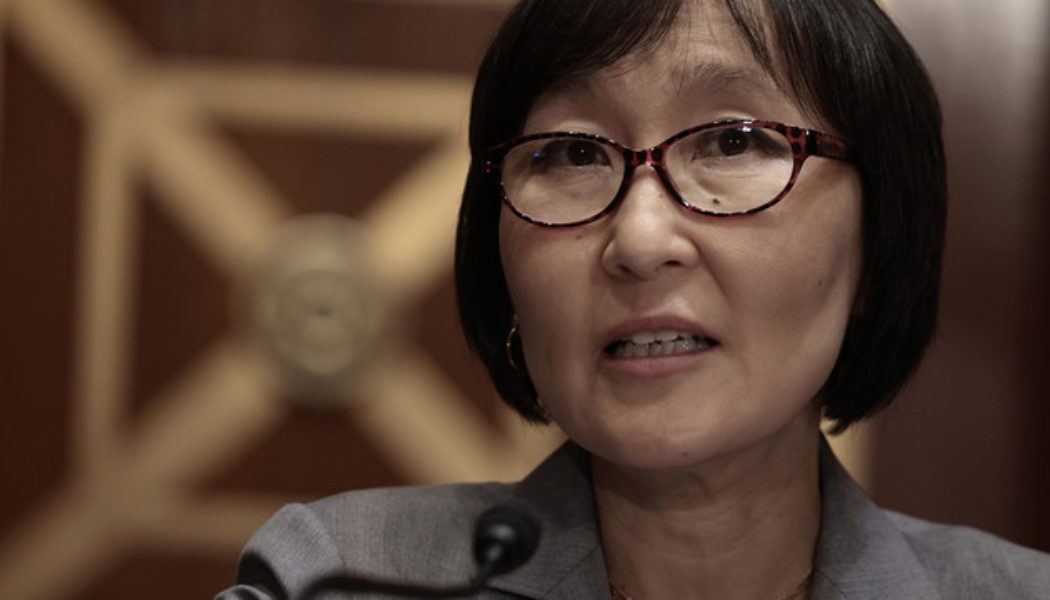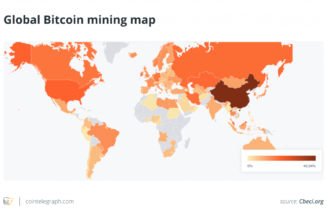The result is that regulators have done little to reverse what many Democrats saw as a weakening of the guardrails around banks during the Trump administration. Progressive priorities, like making it tougher for banks to merge or pressing financial institutions to prepare for climate change, are moving slowly. And there’s no point person on the Fed board during an especially risky moment for the financial system as banks deal with soaring inflation, rising interest rates and disruption caused by the war in Ukraine.
“This is a moment, similar to what was happening in the late 1990s and early 2000s, with tremendous technological shifts in the financial sector,” Omarova said in an interview, referring to the years leading up to the 2008 financial crisis. “At that time, a lot of what was happening was allowed to happen because there was not sufficiently attuned and careful oversight.”
The administration’s difficulties in getting bank cop nominees through a Democratic-controlled Senate underscore the fault lines within the party over how to approach financial regulation. In 2018, fully a third of the Democratic caucus voted in favor of bipartisan legislation aimed in part at slashing regulations on regional lenders that were put in place after the financial crisis, a bill that was fiercely opposed by progressive Democrats as a giveaway to bigger banks.
Now, Biden’s picks are facing new battle lines over emerging issues like the government’s role in regulating cryptocurrency and other financial technology and how bank regulators should tackle the risks posed by climate change, issues that have sunk both prospective and official nominees.
“It raises real questions about just how narrow the path is for anybody to be appointed to these roles,” said Kathryn Judge, a professor at Columbia Law School.
Fed Chair Jerome Powell, asked at a press conference last week about how the central bank was handling regulation in the absence of a vice chair for supervision, said: “We’re making do with the situation we have.”
A White House official called it “disappointing” to have vacancies in the roles of comptroller of the currency and Fed vice chair for supervision “at this important point in our economic recovery.”
“It is critical to have confirmed leadership for these two important positions, which is why it is disappointing that the GOP members of the Banking Committee ignored the sterling qualifications, experience, and background of the two women President Biden nominated for these positions, and instead chose to subject them to baseless, personal attacks,” the person added.
The official said the White House wouldn’t be “sitting around long” in tapping someone else for the Fed job but highlighted a need to get Biden’s remaining four nominees to the central bank, including Powell, through the Senate first.
Sen. Elizabeth Warren (D-Mass.) in a statement to POLITICO said not having someone in that role means “the Fed is ill-equipped to ensure our financial stability at a time of heightened threats.”
“We need regulators who will be tough on addressing the climate crisis, the growing risks to our economy from cryptocurrency, and who will stand up to industry lobbyists to secure our economy,” she said.
In some ways, the vacancies represent a victory for Republicans, who vehemently resisted Raskin’s nomination because she favored more scrutiny of fossil fuel financing. They also cast Omarova as a radical because she wrote favorably about the Fed being the provider of bank accounts for Americans. Without a new Fed regulatory czar, the status quo set by the last one, Trump appointee Randal Quarles, will largely prevail.
Sen. Pat Toomey (R-Pa.), the top Republican on the Banking Committee, told reporters last week that he wasn’t worried about the job going unoccupied for now. “Banks and large financial institutions are extremely resilient and very, very heavily capitalized,” he said. “So I don’t think this is a perilous time at all for financial institutions.”
GOP lawmakers have also warned about the Fed straying outside of its statutory mission on issues like climate change and racial justice.
“I think rushing to appoint someone who has non-consensus views on how the Fed should be used would be much more problematic for the institution and the economy if that went wrong,” said Christina Skinner, an expert on financial regulation at The Wharton School at the University of Pennsylvania. “The best we can hope for is to have a vice chair for supervision who is expressly committed to being apolitical.”
Former Minneapolis Fed President Narayana Kocherlakota in a Bloomberg Opinion piece this week wrote that the White House should depoliticize the role by appointing a longtime central bank staffer.
Since October, any regulatory moves by the Fed have been directed by the full board. The central bank still has an entire staff dedicated to supervising banks; they took the unusual step in December of publicly scolding large banks in the wake of the collapse of overleveraged investment fund Archegos Capital Management.
But the central bank’s supervision committee is currently inactive, with no specific board member directing the longer-term agenda.
An indefinite vacancy might still cause some concern for Republicans, though. The Fed is an institution where the staff already wields a great deal of power, both because of their often-long tenures and their expertise. Many GOP lawmakers have made it a point to push for more accountability at the central bank.
“That’s one of the main reasons to be concerned about not having a vice chair,” Skinner said. “Decisions are just being made in a more opaque process.”
Dennis Kelleher, head of advocacy group Better Markets, expressed frustration at how little focus there was on bank oversight in the debate over Raskin’s candidacy, blaming oil and gas companies for “hijacking” her nomination process. He cited lurking financial risks as the Fed embarks on an interest rate hiking campaign, something he said a vice chair for supervision should be monitoring.
“No matter how much the banks prepare for a different rate environment, they simply cannot anticipate everything that might happen, not only to themselves but also all of their customers and counterparties,” he said. “The Fed needs to be very deeply engaged on the supervisory side in stress testing all the assumptions the banks are making for their own balance sheet.”
There are acting officials running both the FDIC and the Office of the Comptroller of the Currency — Martin Gruenberg and Michael Hsu, respectively — and the Biden administration isn’t expected to replace them anytime soon. Gruenberg, who took the helm of the FDIC in early February after its Republican chair resigned under pressure, has outlined priorities that match up with what Biden appointees would likely do, including a focus on climate change, bank mergers and cryptocurrencies.
Hsu, who has held his role on an acting basis since last May, already put out draft guidance for large banks suggesting that climate change could pose material danger to their health.
But the three federal bank regulators generally move together on policy moves, and the Fed is unlikely to chart any new course without the direction of a political appointee, even in instances where the industry might want more clarity. That could also complicate efforts at its fellow agencies.
“Formal Senate confirmation is not necessarily a prerequisite nor is it a guarantee of people doing the things that need to be done and doing them well,” said Omarova, who is a professor at Cornell Law School. But she highlighted the benefit of government officials “being vetted and publicly questioned about their policy views and evaluated.”
“It gives the regulator a greater sense of legitimacy and democratic approval,” she said, adding that they are facing “novel questions of law and policy that will likely shape the trajectory of financial markets for years or even decades to come.”
[flexi-common-toolbar] [flexi-form class=”flexi_form_style” title=”Submit to Flexi” name=”my_form” ajax=”true”][flexi-form-tag type=”post_title” class=”fl-input” title=”Title” value=”” required=”true”][flexi-form-tag type=”category” title=”Select category”][flexi-form-tag type=”tag” title=”Insert tag”][flexi-form-tag type=”article” class=”fl-textarea” title=”Description” ][flexi-form-tag type=”file” title=”Select file” required=”true”][flexi-form-tag type=”submit” name=”submit” value=”Submit Now”] [/flexi-form]









